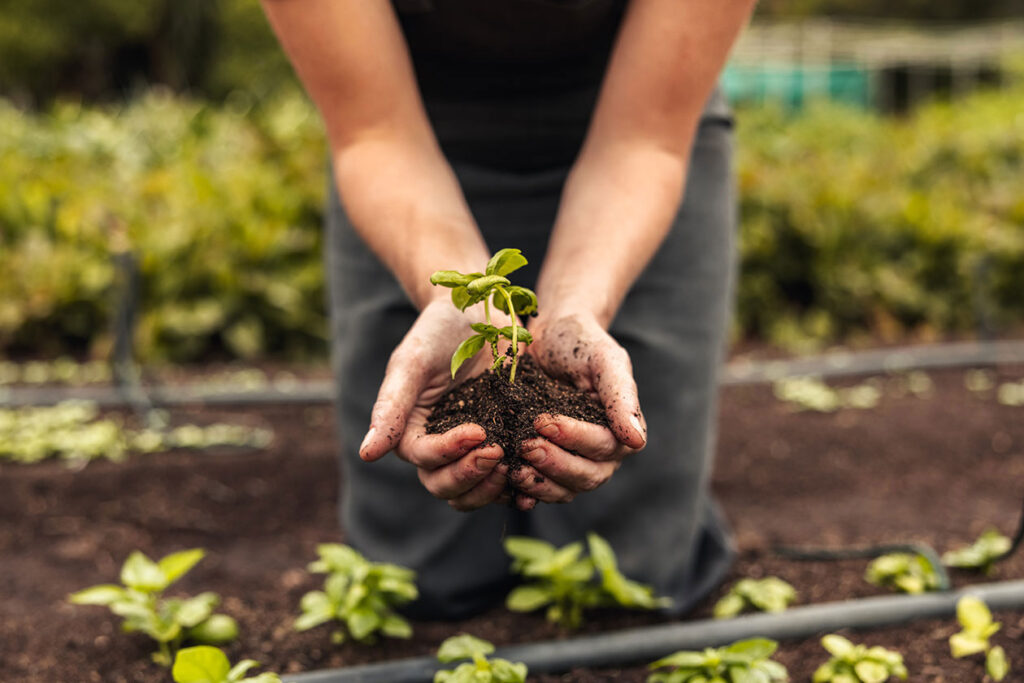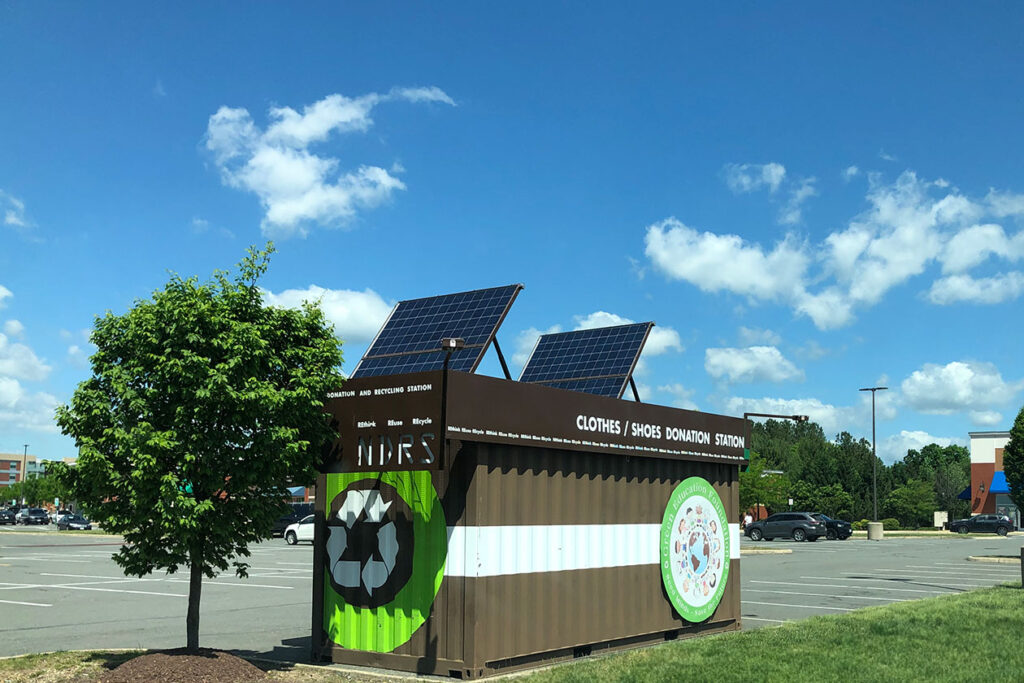Embracing Sustainability in Loudoun
Loudoun County is a community that prides itself on its commitment to sustainability and environmental stewardship. With a multifaceted approach encompassing renewable energy, recycling, composting, water conservation, and supporting local farms, Loudoun is making significant strides towards reducing its ecological footprint and promoting a sustainable lifestyle among its residents.
By using local resources, engaging the community in environmental education, and implementing green initiatives, Loudouners can help preserve the beauty and health of the areas natural surroundings, and also ensure a vibrant and sustainable future for generations to come. This dedication to sustainability is reflective of Loudoun County’s broader commitment to enhancing the quality of life for all its residents through thoughtful, environmentally conscious development and practices.
Sustainability encompasses a broad range of practices aimed at reducing environmental impact and promoting the wise use of resources. Here, we explore how Loudoun is embracing sustainability through a multi-faceted approach.
Renewable Energy
Loudoun County’s commitment to sustainability extends to energy use by actively promoting and implementing energy-efficient practices, renewable energy projects, and innovative strategies designed to reduce energy consumption and increase clean energy production. The adoption of renewable energy sources, including solar and wind, is on the rise, with local government and businesses investing in sustainable energy solutions. The county’s 2023 Energy Strategy illustrates this commitment, focusing on leading by example through government operations, supporting clean energy development, and encouraging community-wide actions for energy conservation.
Water Conservation
Loudoun prioritizes water conservation as a key aspect of its sustainability efforts, recognizing the importance of wise water use both for environmental protection and to help residents save on water bills. The county, served by Loudoun Water, actively encourages responsible water use indoors and outdoors, given that only a small fraction of the planet’s water is available for human use. Initiatives include promoting efficient water appliances and practices among its rapidly growing population to ensure the sustainable management of water resources. Water conservation practices, such as rainwater harvesting and the use of low-flow fixtures, are encouraged to safeguard this vital resource.
Comprehensive Recycling Efforts
Recycling is a cornerstone of Loudoun County’s environmental initiatives. With several recycling centers, including the Loudoun County Landfill Recycling Center and facilities like Potomac Metals in Sterling, the county provides ample opportunities for residents to recycle a broad spectrum of materials. These centers cater to everything from household recyclables to scrap metal, emphasizing the importance of proper sorting and disposal to maximize efficiency and environmental benefits.
The Rise of Composting
Composting is gaining momentum in Loudoun County as a natural method to manage organic waste. By turning kitchen scraps and yard waste into nutrient-rich soil, the community is reducing landfill use and enhancing local gardening and farming practices. This effort not only supports waste reduction but also contributes to soil health and reduces the need for chemical fertilizers.

Sustainable Transportation
The county promotes sustainable transportation options, including public transit, biking, and electric vehicles, to reduce carbon emissions and traffic congestion. Loudoun County is making strides in sustainable transportation to meet the needs of its rapidly growing population and to reduce environmental impacts. The county’s Department of Transportation and Capital Infrastructure plays a pivotal role in overseeing roadway planning, local transportation projects, transit functions, and the planning, design, and construction management for county facilities. This comprehensive approach aims to create a more connected and sustainable transportation network.
Green Building
Green building practices in Loudoun County include the integration of energy-efficient and resource-conserving designs into new developments, ensuring that buildings enhance their natural surroundings. The county’s oversight process involves reviewing construction plans, land subdivision, permit issuance, and conducting inspections to guarantee these developments meet sustainability and environmental stewardship standards. These efforts ensure that developments within the county meet high standards of sustainability and environmental stewardship.
Local Farms and Eco-Friendly Products
Supporting local agriculture is a key aspect of Loudoun County’s sustainability strategy. By choosing locally sourced produce and goods, residents reduce the carbon footprint associated with food transportation and support the local economy. The county also encourages the use of eco-friendly products, from sustainable materials to minimally packaged goods found at local farmers markets. Adding to a sustainable lifestyle, Loudoun’s farmers markets serve as a vital link between farmers and consumers, showcasing the county’s rich agricultural heritage and providing a platform for sustainable, community-focused shopping that reinforces the county’s commitment to a greener future.
Community Engagement and Education
Loudoun County’s sustainability initiatives are bolstered by strong community engagement and education. Through workshops, school programs, and community events, residents of all ages are learning about the importance of environmental protection and sustainable living practices. This collective effort fosters a sense of shared responsibility and empowers individuals to make a positive impact.
Community Recycling Stations

Neighborhood Donation Recycling Stations (NDRS) are a convenient way for communities to donate and recycle items they no longer need. These stations are typically placed in strategic locations, making it easy for residents to drop off their donations. The donated items are then collected by organizations like the Green Education Foundation , which sorts and processes the items. Reusable items are sold through GEF’s retail outlets, while unusable items are recycled into new products. By providing accessible recycling collection stations within local communities, NDRS programs play an important role in promoting zero-waste initiatives. Donating unwanted items through NDRS directly benefits the community by supporting local organizations and reducing waste. NDRS programs offer a simple yet effective solution that contributes to a healthy and united community through recycling and reuse.
Thrifting
Thrift Stores contribute to sustainability by offering a way to reuse and repurpose items that are still in good condition, thereby reducing waste and the demand for new products. Shopping at or donating to thrift stores can significantly extend the life cycle of goods and reduce environmental impact.
Wildlife Conservation
Wildlife conservation is an integral part of sustainability. Protecting wildlife helps maintain biodiversity, which is crucial for ecological balance. Healthy ecosystems depend on plant and animal species as their foundations. By conserving wildlife and their habitats, we support natural ecological processes that contribute to the sustainability of our environment, ensuring resources are available for current and future generations.
Loudoun has implemented several wildlife conservation initiatives aimed at preserving its natural habitats and promoting biodiversity. The Loudoun Wildlife Conservancy plays a key role in these efforts, engaging in activities such as habitat restoration, protecting pollinators, and monitoring local wildlife populations including amphibians, bluebirds, and various bird species through specific counting programs.
Looking Ahead
Each of these practices contributes to a sustainable lifestyle by minimizing waste, reducing the demand for new products, lowering greenhouse gas emissions, and fostering a community-oriented approach to consumption and waste management. Together, they represent a holistic approach to sustainability that goes beyond conservation to include social and economic dimensions, promoting a more resource-efficient, circular economy.
As Loudoun County continues to grow, its dedication to sustainability remains steadfast. Through community participation, and a commitment to green practices, the county is setting a standard for environmental stewardship that inspires others to follow. The journey towards a more sustainable Loudoun is a collective endeavor, one that promises a brighter, greener future for generations to come.
